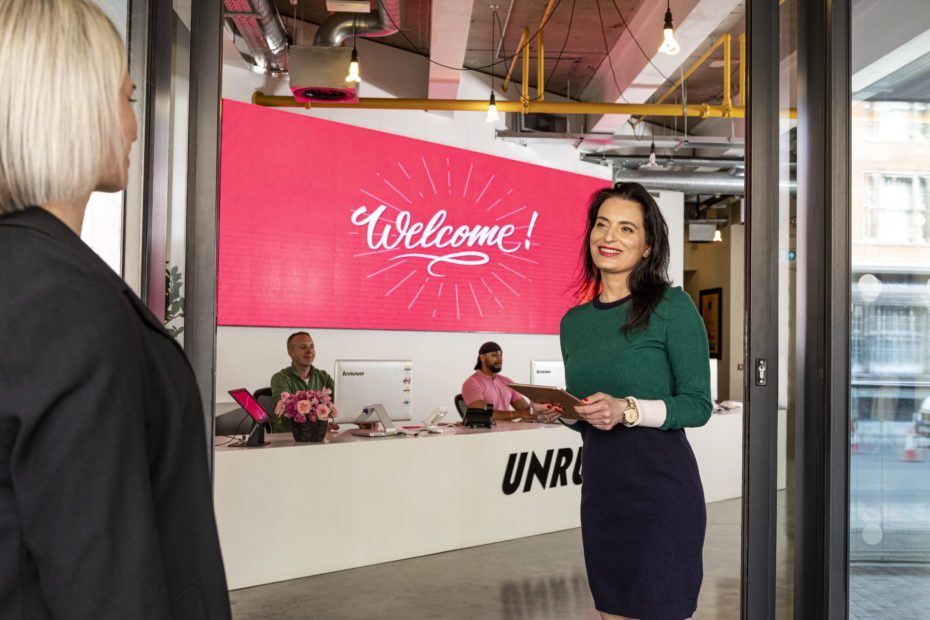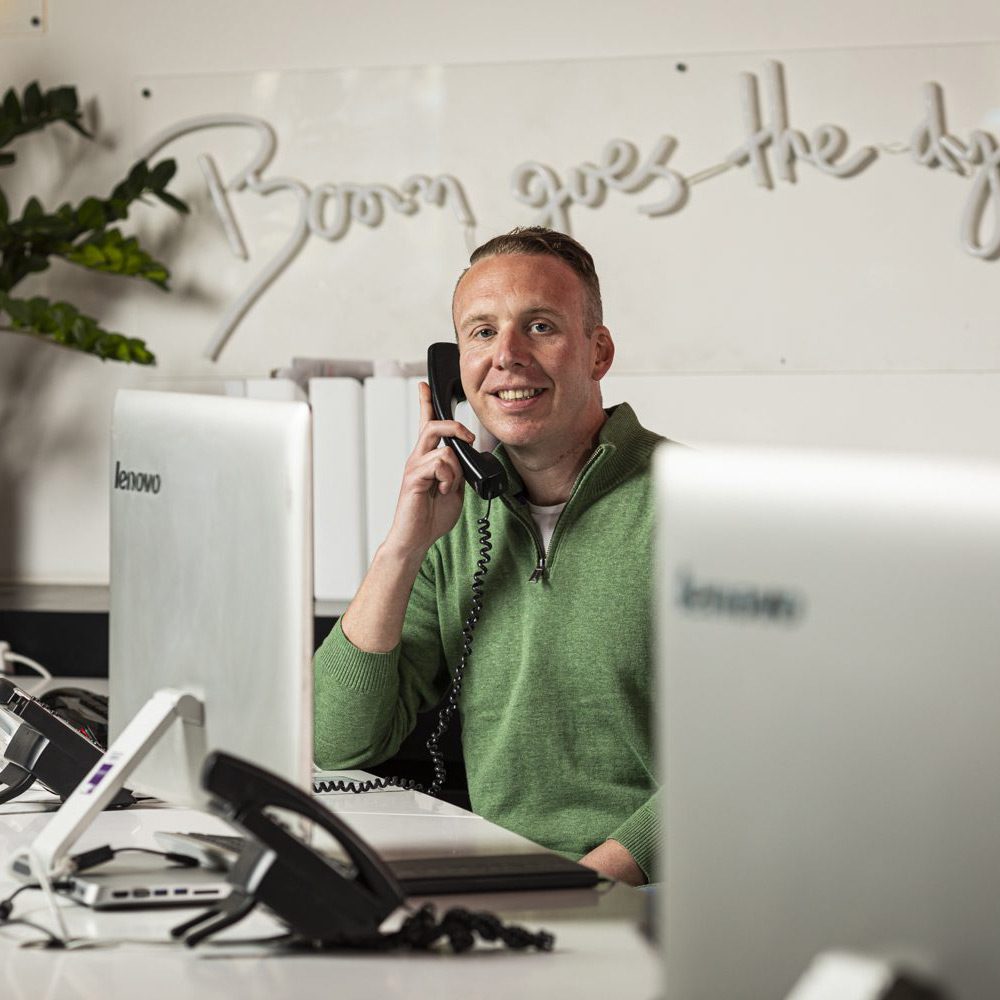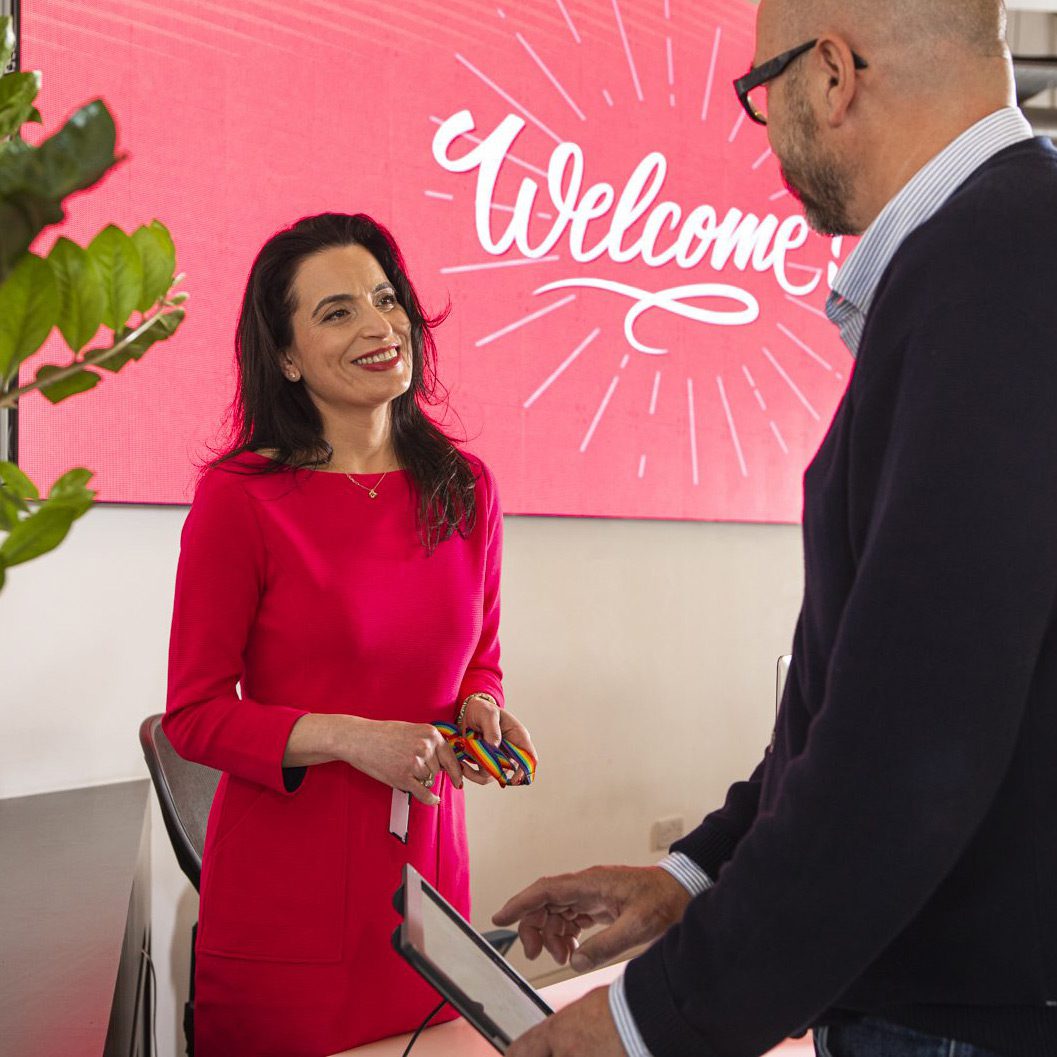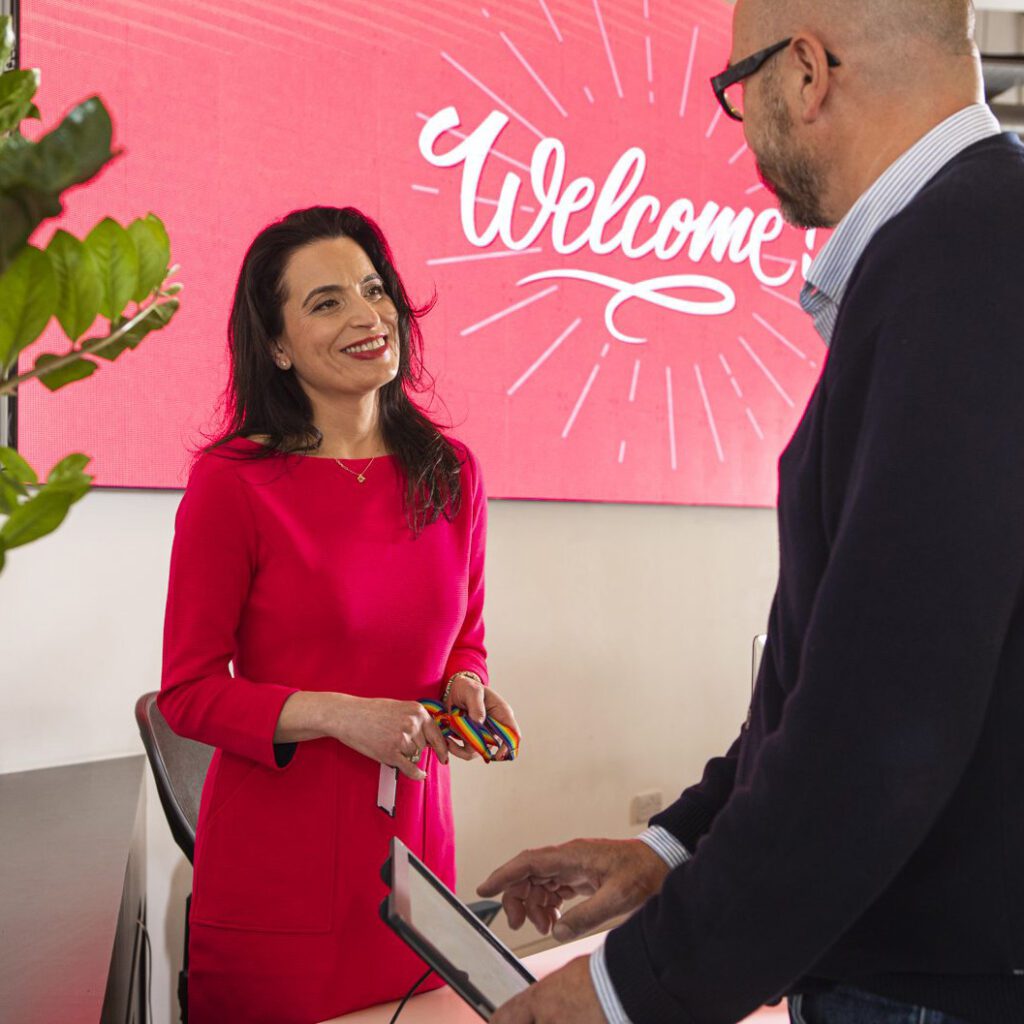Workplace culture has become the biggest trend over the last year. As companies navigate their workplace strategies and try to ensure that their employees are happy and productive in the office – whether they are mandated to come in or not – the culture created there is extremely valuable.
Strategies can range from enhancing employee benefits to offering more flexible working hours.
Some sectors are quicker to embrace change than others. Traditionally, corporate businesses can be among the slowest to make changes. But when it comes to reception areas and front-of-house (FOH) teams, the reinvention has already begun.
The end of the corporate reception area?
Corporate receptions commonly aspire to that of a 5-star hotel – FOH staff were expected to be dressed immaculately and blend into the background. However, there has been talk of how corporate reception areas are changing, with the biggest new addition being staff coming out from behind the desk for the first time.
I believe this is changing through a combination of client policies and education from guest services partners such as On Verve. In fact, we may be heading towards a future where the corporate reception desk disappears entirely!
Until then, the role of a corporate receptionist is entering a new era. The type of person that can undertake that duty is changing. We’ve had more than one large corporate client tell us that they don’t want a traditional “stiff” receptionst, but someone warm, relaxed, and personable looking after their guests and, more importantly, their staff.
These people – at On Verve we call them DayMakers – are asked to not only welcome employees and visitors at reception, but to roam the workplace and support occupants as needed throughout the day. This might be anything from giving directions to a visitor, to helping direct an employee with IT problems to the right person.
For this type of work, the right personality is arguably more important that the right skillset. We take that approach with our recruitment, and it pays off for our clients.
You can’t teach a personality
It’s essential to listen to a client when they share their requirements for FOH staff. It can be easy to fall into the trap of hiring the same type of people, but that would do the client a disservice.
On the other side, it might take some persuading with clients to move forward with certain candidates. A CV might not tick all the boxes for required skills, but if we think a candidate’s personality is the perfect fit then we’ll share with the client.
After all, you can learn skills, but a personality can’t be taught.
Recruitment for growth
The widening scope of the FOH role has the potential to open it up to a much larger pool of candidates than before. Now it’s up to guest service firms to get the word out.
In addition to the usual job boards and recruitment methods, we’ve started relationships with job centres where we’re giving a presentation and offering two-week placements. It’s likely that most of these people will never have considered a job in guest services, but it might in fact be the ideal fit for them.
A great example was our recruit Ingrid. She was in her mid-50s when she joined our team with no prior experience of working in a corporate setting. In fact, she wasn’t even comfortable using a computer. However, her personality was exactly what our client wanted, and she has become embedded as a key part of the client team.
Since joining we have given her relevant training to get her up-to-speed with the technology required for the role, and she has flourished.
Recruiting the right people helps to create a positive business environment, benefitting both the client and the business itself.
The future for front-of-house
It’s exciting to see more corporate firms embrace the change to reception areas and teams. I truly believe this shift will be a permanent change, as FOH teams have so much more to offer when they are not tied to a reception desk.
For those of us working in the sector, it’s up to us to advise clients, educate them where needed, and spread the word far and wide about these new career opportunities. It’s a wonderful chance to increase the diversity of people working in guest services.





